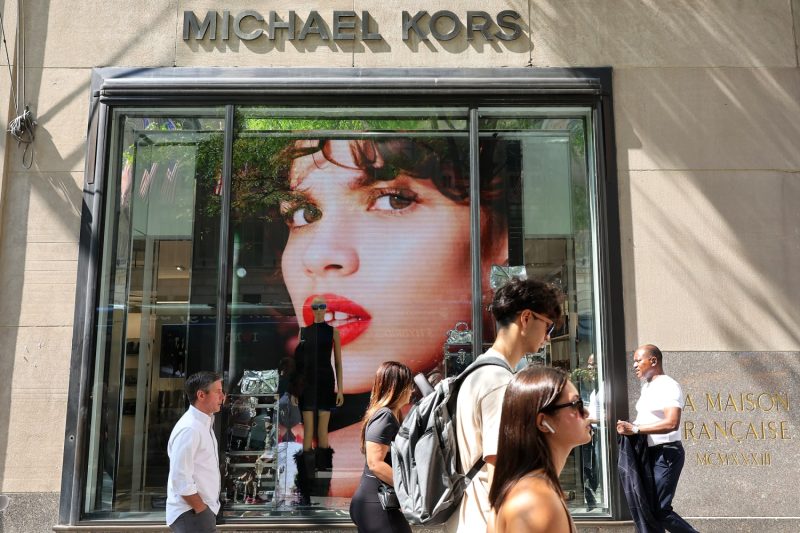As a leading global fashion brand, Michael Kors has been a pillar in the luxury goods market due to its sleek designs and elegant style. However, in an intriguing statement during a recent federal trial, the company made it known that it has been finding it increasingly difficult to sell handbags in the new age dominated by the likes of TikTok and pop star, Taylor Swift.
Changing Consumer Behavior
For decades, Michael Kors has been the go-to brand for many seeking a taste of luxury and exceptionally designed handbags. Though, it has become apparent that there is a shift in consumer behavior making it harder for brands like Michael Kors to sell handbags like they used to. The advent of social media platforms, such as TikTok, and the influence of pop culture icons, like Taylor Swift, has made a significant impact on what consumers value.
TikTok, a platform that has seen exponential growth in user base and content over the last few years, has become a game-changer in the fashion industry. Rather than adorning oneself with luxury brands that emphasize status, the new generation of consumers prefers ‘trending’ items that will gain them recognition on social media platforms. This shift to wanting more ‘viral’ and budget-friendly products has taken a toll on the luxury goods market.
Taylor Swift’s Influence
Meanwhile, Taylor Swift, a pop icon, has also shaped the youth’s spending habits, particularly with how they associate identity with the products they purchase. Swift’s style, which often incorporates pieces from emerging brands or thrifted items, echoes the new era’s preference for individuality over brand names. This dramatic shift away from luxury and toward more individualized style has also complicated the traditional advertising methods used by brands like Michael Kors.
Challenges Brought by TikTok and Swift
The changing landscape brought by the likes of TikTok and Taylor Swift creates a unique challenge for Michael Kors. The brand now finds itself in the position of having to adapt and evolve its marketing strategies to meet the changing tides. Younger consumers are more focused on gaining social media recognition and embracing unique styles and individuality through their purchases.
The focus on how a product, like a handbag, can facilitate self-expression and online omnipresence over the sheer prestige of a brand represents a significant shift in the industry. Michael Kors, like other luxury entities, is being compelled to rethink and redesign its approach to appeal to the new consumer trends.
The Digital Age and Luxury Brands
In the face of these challenges, it seems that digital platforms and pop culture influencers will continue to dictate trends moving forward. These platforms and individuals have a substantial effect on younger consumers’ purchasing behaviors, influencing which products gain popularity despite the status and reputation of renowned brands like Michael Kors.
For luxury brands, it is crucial to observe these trends and adapt to the changing market demands. Brands need to tap into social media platforms, embrace digital marketing strategies, and consider collaborations with influencers that resonate with their target audience. This revolution of consumer behavior marks a challenging yet exciting era for the luxury goods market.
In conclusion, while brands like Michael Kors grapple with navigating the nuances of the digital age and its impact, their longevity will depend on their adaptability. Luxury brands are tasked with the challenge of balancing their brand heritage and craftsmanship while embracing the new norms brought about by platforms like TikTok and influencers like Taylor Swift. Successful navigation through this terrain will undoubtedly require innovation, flexibility, and a deep understanding of their evolved consumer base.




